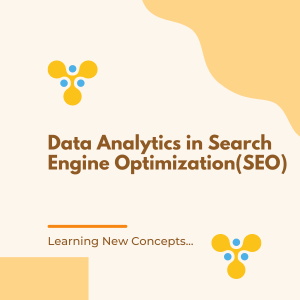Unraveling the Basics of Data Analytics in Search Engine Optimization (SEO)
In the ever-evolving landscape of digital marketing, Search Engine Optimization (SEO) stands as the cornerstone for enhancing online visibility and driving organic traffic to websites. However, with search engine algorithms becoming increasingly sophisticated, traditional SEO strategies alone may not suffice. This is where data analytics steps in as a powerful ally, offering insights and strategies to optimize your SEO efforts effectively.
Understanding Data Analytics in SEO
Data analytics in SEO involves the collection, analysis, and interpretation of data to make informed decisions and refine strategies for better search engine performance. By leveraging data, marketers can gain valuable insights into user behavior, keyword performance, content effectiveness, and more, ultimately improving website rankings and driving conversions.
Key Components of Data Analytics in SEO
1. Keyword Research and Analysis
Keyword research forms the foundation of any successful SEO campaign. Data analytics tools provide valuable insights into search volumes, keyword competitiveness, and user intent, enabling marketers to identify high-performing keywords to target in their content optimization efforts.
2. Website Traffic Analysis
Analyzing website traffic metrics such as page views, bounce rates, and session durations offers valuable insights into user engagement and website performance. By identifying trends and patterns in traffic data, marketers can optimize website structure, content, and user experience to enhance SEO performance.
3. Competitor Analysis
Competitor analysis is essential for staying ahead in the competitive landscape of SEO. Data analytics tools allow marketers to analyze competitor strategies, keywords, and backlink profiles, providing valuable insights to refine their own SEO strategies and gain a competitive edge.
4. Content Performance Tracking
Content lies at the heart of SEO success. Data analytics enables marketers to track the performance of their content, including page rankings, social shares, and engagement metrics. By identifying top-performing content and optimizing underperforming assets, marketers can maximize the impact of their content marketing efforts on SEO.
5. Link Profile Analysis
Backlinks play a crucial role in SEO, influencing search engine rankings and domain authority. Data analytics tools enable marketers to analyze their link profiles, identify quality backlink opportunities, and monitor the effectiveness of their link-building efforts in improving search visibility.
Implementing Data Analytics in SEO Strategies
1. Choose the Right Tools
Selecting the right data analytics tools is crucial for effective SEO analysis. Popular tools such as Google Analytics, Google Search Console, SEMrush, and Moz offer comprehensive features for keyword research, website analysis, and competitor tracking.
2. Set Measurable Goals
Define clear, measurable goals for your SEO campaigns, such as improving keyword rankings, increasing organic traffic, or boosting conversion rates. By setting specific objectives, you can track progress effectively and refine your strategies based on data-driven insights.
3. Regularly Monitor and Analyze Data
Consistent monitoring and analysis of SEO data are essential for identifying trends, detecting anomalies, and refining strategies in real-time. Schedule regular audits to track key metrics, identify areas for improvement, and adapt your SEO tactics accordingly.
4. Test and Iterate
SEO is an iterative process that requires constant testing and refinement. Experiment with different strategies, keywords, and content formats to gauge their effectiveness. Use A/B testing and split testing methodologies to identify the most successful approaches and optimize accordingly.
5. Stay Updated with Industry Trends
The field of SEO is constantly evolving, with search engine algorithms and best practices continually changing. Stay abreast of industry trends, algorithm updates, and new technologies to ensure your SEO strategies remain effective and future-proof.
Conclusion
Data analytics has emerged as a game-changer in the realm of Search Engine Optimization, empowering marketers to make data-driven decisions and optimize their strategies for maximum impact. By harnessing the power of data analytics tools and techniques, marketers can gain valuable insights, refine their SEO strategies, and achieve sustainable success in the competitive landscape of online search. Embrace data analytics as your ally in SEO, and unlock the full potential of your digital marketing efforts.

.png)
.png)
.png)
.png)
Post a Comment